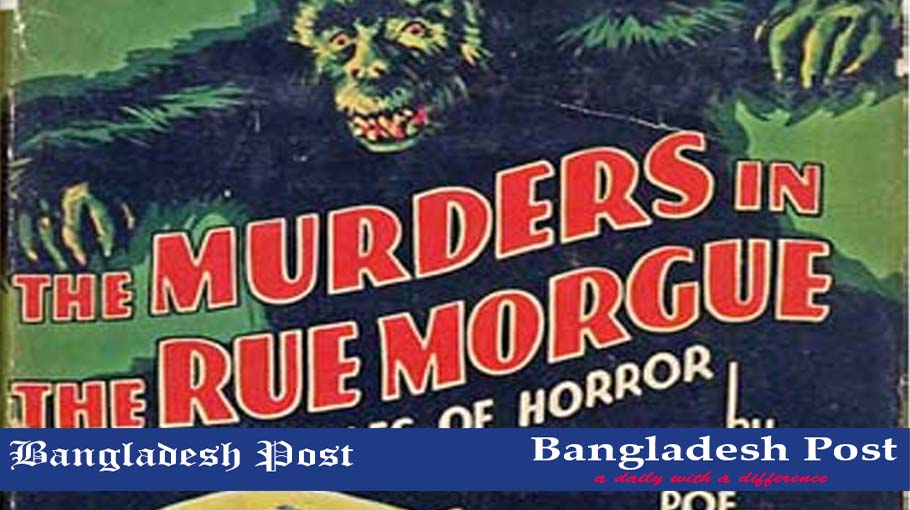This Day in History
First ever detective story published

Edgar Allan Poe’s story, ‘The Murders in the Rue Morgue’, first appears in Graham’s Lady’s and Gentleman’s Magazine. The tale is generally considered to be the first detective story and was published today in 1841.
The story describes the extraordinary analytical power used by Monsieur C Auguste Dupin to solve a series of murders in Paris. Like the later Sherlock Holmes stories, the tale is narrated by the detective’s roommate.
Following the publication of Poe’s story, detective stories began to grow into novels and English novelist Wilkie Collins published a detective novel, ‘The Moonstone’, in 1868. In Collins’ story, the methodical Sergeant Cuff searches for the criminal who stole a sacred Indian moonstone. The novel includes several features of the typical modern mystery, including red herrings, false alibis, and climactic scenes. The greatest fictional detective, Sherlock Holmes, first appeared in 1887, in Sir Arthur Conan Doyle’s novel ‘A Study in Scarlet’. The cozy English mystery novel became popularized with Agatha Christie’s Miss Marple series in the 1920s, when other detectives like Lord Peter Wimsey and Ellery Queen were also becoming popular. In the 1930s, sometimes called the golden age of detective stories, the noir detective novel became the mainstay of writers like Dashiell Hammet, Raymond Chandler, and Mickey Spillane. Tough female detectives such as Kinsey Millhone and VI Warshawski became popular in the 1980s.




